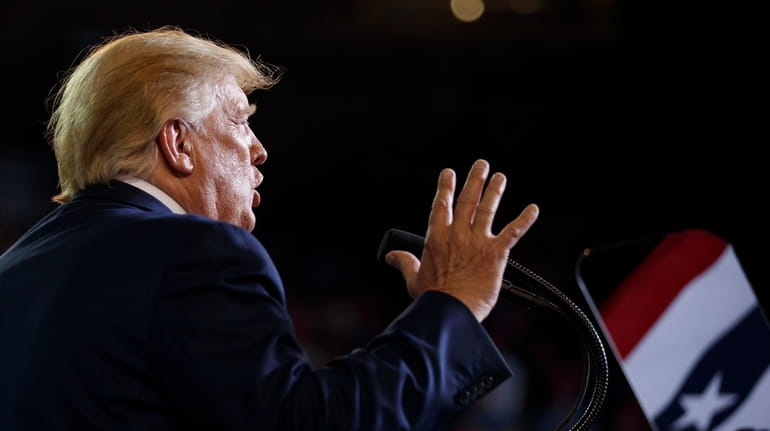The facade of benign nationalism

President Donald Trump speaks at a campaign rally at Williams Arena in Greenville, N.C., on Wednesday. Credit: AP/Carolyn Kaster
Even as Donald Trump doubled down on his immigrant-baiting attacks on four Democratic congresswomen last week, with a crowd at his rally chanting “Send her back!” about Somali-born Rep. Ilhan Omar, a conference in Washington, D.C. tried to launch a movement that would give Trump-style conservative nationalism an intellectual base and a respectable face. It didn’t work.
The conference, called “National Conservatism” and organized by Israeli-American political scientist Yoram Hazony, was a frontal attack not only on globalism and internationalism, but, no less important, on libertarianism and (in Hazony’s words) classical liberalism. While I was unable to attend the event, detailed reports and, in some cases, transcripts give a picture that is clear enough — and should be worrying. As Reason magazine’s Stephanie Slade put it in her account of the conference, “Anti-individualism seems to be the unifying theory of the ascendant political right.”
I am far from being a libertarian absolutist, on either social or economic issues. Some level of governmental regulation is almost certainly necessary for the functioning of a modern society; virtually everyone will agree that market forces need to be tempered and supplemented by a social safety net. But the national conservatives seem intensely hostile to markets, blaming them both for the immiseration of the American worker and for the decline of social traditionalism. Fox News host Tucker Carlson even suggested that corporations support abortion rights because they don’t want women to have children and opt out of full-time work.
While trashing a straw man of “atomized” individualism, speaker after speaker called for massive government powers in such areas as trade, industry and employment, with only the occasional expression of concern about the dangers nationalism could pose to local government and communities.
But perhaps the conference’s biggest failure was in its effort to separate nationalism from the specter of xenophobia and even racism — an association that Hazony and others have long decried as a smear.
In opening remarks, attorney and activist David Brog repudiated white nationalism. And yet at least one of speakers, University of Pennsylvania law professor Amy Wax, skirted perilously close to it in her remarks advocating immigration restrictions. Such restrictions, she suggested, should be based on “cultural distance” — that is, we should be wary of admitting people from countries with cultures very dissimilar to own, who are unlikely to assimilate successfully.
Difficulties in assimilation exist. But Wax’s argument ignores a number of factors. People who come here from nations steeped in religious intolerance and repressive attitudes toward women and gays often try to flee from those things, not import them to America. Immigrants from “backward” countries are likely to aspire to education and advancement, for themselves and especially their children.
Perhaps most troubling of all, Wax went on to frame her argument in explicitly racial terms. “Embracing cultural distance,” she said, “means in effect taking the position that our country will be better off with more whites and fewer nonwhites.” Conservatives, she said, should shed “the fear of being accused of racism, white supremacy, xenophobia” to have a frank conversation about immigration.
Wax’s supporters denied that her argument was racist. But when we’re talking about criteria as vague and amorphous as “cultural distance,” it seems like an invitation to use race as a proxy for compatibility.
For good measure, Wax also defended Trump’s comments a year ago wondering why the United States should take in immigrants from “[expletive] countries” in the Third World. Behind the facade of benign patriotic nationalism, it seems, the ugly face of Trumpism lurks after all.
Cathy Young is a contributing editor to Reason magazine.
